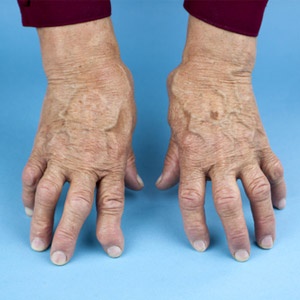
Genetic variations may hold clues to rheumatoid arthritis – suggesting not only who will develop the painful condition, but also predicting its severity and even who might die from it, a new study says.
Tailoring treatment to individuals
"Genetic factors predisposing to disease, to disease severity, and response to treatment will allow tailoring treatment to individual patients' needs," said lead researcher Dr. Sebastien Viatte, a research fellow at the University of Manchester in England.
Using data from several sources on thousands of patients in the United Kingdom, researchers found that gene mutations at a location on a chromosome called HLA-DRBl were associated with rheumatoid arthritis severity and the response to treatment with tumour necrosis factor (TNF) inhibitor drugs.
This study, Viatte said, is a potentially important first step toward personalised medicine for patients with the challenging autoimmune disease.
Read: Symptoms of rheumatoid arthritis
In rheumatoid arthritis, the body's immune system mistakenly attacks the joints, causing inflammation that can damage joints and organs, such as the heart, according to the Arthritis Foundation. About 1.5 million people in the United States have the often disabling condition.
Viatte said the new findings, published April 28 in the Journal of the American Medical Association, must be replicated before they can influence patient treatment.
Still, Dr. David Felson, a professor of medicine and epidemiology at Boston University School of Medicine, welcomed the report.
Genetic abnormality
"This newly discovered genetic abnormality that is associated with the risk of developing rheumatoid arthritis seems also to be associated with the severity of the disease and maybe with risk of dying from rheumatoid arthritis," said Felson, co-author of an accompanying journal editorial.
He added that although the risks associated with this mutation are modest, they appear to be real. "Every little bit helps," Felson said.
There isn't just one gene associated with rheumatoid arthritis, however, Felson said. Also, outside factors such as smoking may play a part, he said.
Read: Diagnosing rheumatoid arthritis
Advances have been made in identifying genetic susceptibility for autoimmune diseases, but not much is known about how this might affect disease prognosis and treatment, according to background information in the study.
To explore the association between HLA-DRBl gene mutations and rheumatoid arthritis, Viatte's team used imaging data collected on more than 2,100 patients to evaluate the severity of the disease.
They evaluated the risk of death in more than 2,400 patients and the effectiveness of TNF inhibitor drugs on more than 1,800 patients.
Better understanding of rheumatoid arthritis
The findings may help doctors and scientists better understand rheumatoid arthritis, Felson said. This also opens the door to further research, he added.
"To the extent that we can come up with new treatments, these treatments ought to take into account this gene mutation," Felson said.
Read: Treatment of rheumatoid arthritis
Also, knowing who has this mutation might help identify which patients will need aggressive treatment, Felson said.
"We can now use all this to tell roughly how well a patient with rheumatoid arthritis is going to do, or how poorly they are going to do," Felson said.
Read More:
Weight a factor in rheumatoid arthritis remission
Depression in rheumatoid arthritis sufferers higher than previously thought




 Publications
Publications
 Partners
Partners











